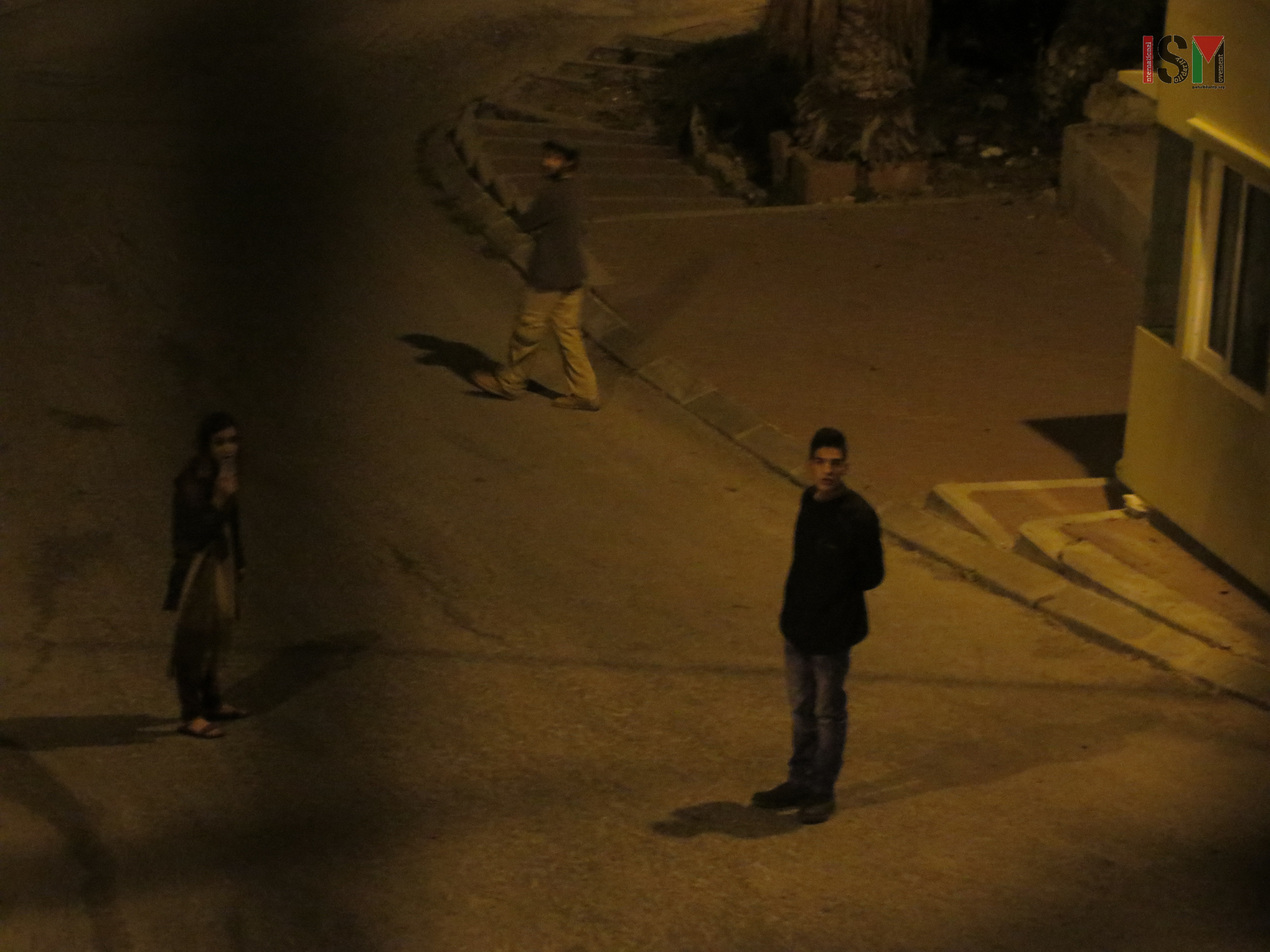Tag: House Demolition
-
Six families in Jerusalem wait for their homes to be demolished
On Thursday, January 7th, the ISM went to visit Kifaya Rishek, a widow who lives in Beit Hanina, occupied East Jerusalem, waiting for her home to be demolished. But Kifaya is not alone, she lives in this house together with her five children and 16 grandchildren, including 11 year-old, Malak, who is physically disabled. Their…
-
Israeli settlers trespass & attempt to enter the home of international human rights workers
26th October 2015 | International Solidarity Movement, al-Khalil team | Hebron, occupied Palestine On October 25th, around 2am, strange noises could be heard through the window of an apartment in Tel Rumeida where nine international human rights activists are currently living. Upon further inspection, four adult male settlers were identified, trespassing on the property. In…
-
Home demolitions as collective punishment: another Israeli colonization strategy
19th October, 2015 |International Solidarity Movement, Nablus Team | Nablus, occupied Palestine On October 4, at 4:00 in the morning, 8 Palestinian men were arrested under extremely violent conditions by Israeli forces in the city of Nablus, North West Bank. The men have been accused of participating in the killing of two illegal Israeli settlers…



